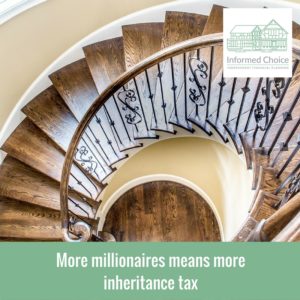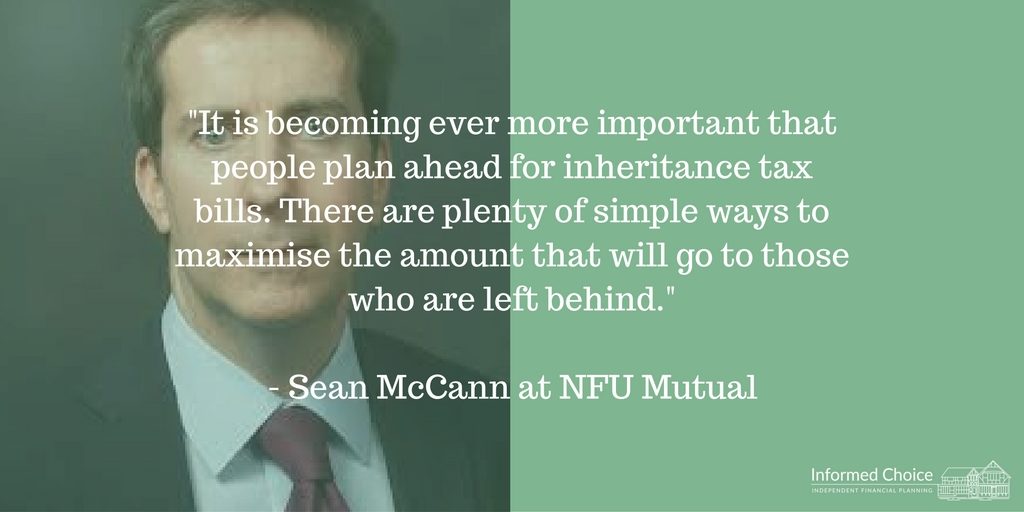 More millionaires means more inheritance tax, with the number of British millionaires growing by nearly a third in recent years.
More millionaires means more inheritance tax, with the number of British millionaires growing by nearly a third in recent years.
New analysis of the latest UK Personal Wealth Statistics from HM Revenue & Customs has found the number of millionaires rose by 27% between 2008-2010 and 2012-2013.
NFU Mutual found the UK is now home to an estimated 409,000 millionaires.
Assuming this rate of increase continues, the UK could be home to almost 500,000 millionaires this year, rising to almost 600,000 by 2020.
As a result, many more people are likely to pay inheritance tax in the future – especially if the inheritance tax nil rate band remains frozen until 2021, as planned.
[tweet_box]More than 400,000 millionaires in the UK, which means more inheritance tax to pay[/tweet_box]According to Sean McCann at NFU Mutual:
“More millionaires means more inheritance tax for the Treasury.
“These figures show that the taxman is set to take an ever greater slice of people’s estates over the next few years as house prices and share prices have boosted the wealth of the nation.
“It is becoming ever more important that people plan ahead for inheritance tax bills. There are plenty of simple ways to maximise the amount that will go to those who are left behind.
“The tax free allowance of £325,000 has been frozen since 2009 and is set to stay the same until 2021.
“The new tax free allowance that can be used to save inheritance tax on the family home is being introduced from April 2017, it will rise from £100,000 to £175,000 in 2020. By which time it will be possible for a married couple to leave up to £1m free of IHT.”
Inheritance tax has been a feature of the UK taxation system since 1984, when it replaced capital transfer tax, the successor to estate duty.
It is often referred to as a voluntary tax, because there are ways to reduce or entirely remove a liability for inheritance tax.
With careful planning, the value of your taxable estate can be significantly reduced, or even taken down to zero.
But inheritance tax planning usually involves a balance of effectiveness and control.
The most effective inheritance tax planning will usually result in the complete loss of control of financial assets, which isn’t right for everyone.
The first step in inheritance tax planning is to quantify the current level of liability for your family, if you were to die today, before considering the range of options for reducing that tax bill.
We always encourage our clients to consider their inheritance tax planning as part of a wider financial planning exercise, as the ability to understand whether you will run out of money in your lifetime is another important starting point before making gifts out of income or assets.


